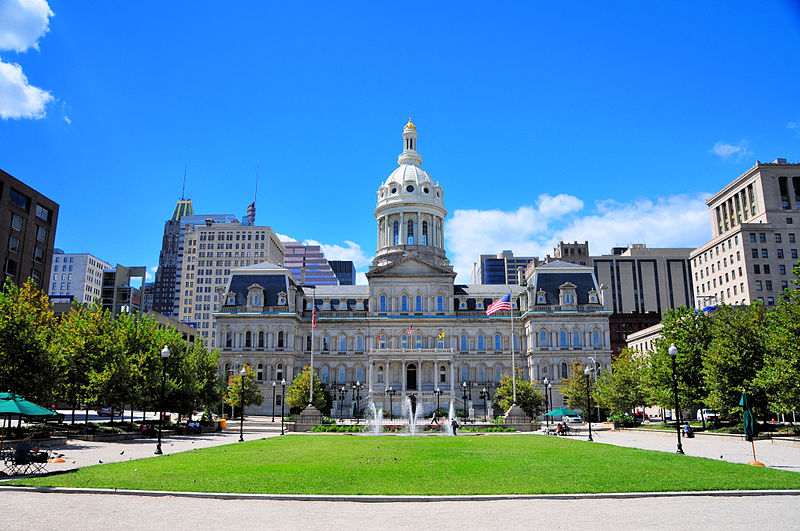The Baltimore City Council will consider legislation banning the sale of the city’s 700-mile conduit system and establishes stricter penalties for improper use.
Introducing the two bills at the City Council’s meeting on Monday, Council President Bernard C. “Jack” Young said both moves are connected to a wider discussion about the future of broadband in the city. The municipal conduit is one of several areas Young sought to dig into when he introduced a series of resolutions surrounding internet access in last year.
“I am introducing these two pieces of legislation to think further about how city government can better preserve and improve internet access for Baltimore city residents, businesses, students and visitors,” he said. “I have always been a proponent of keeping our city assets public.”
The 100-year old underground conduit system contains electrical, communication and fiber-optic cables. The city uses space to connect traffic signals, and companies such as Baltimore Gas & Electric (BGE) also rent space to run wiring. Past looks at the city’s infrastructure have noted that future development of the conduit could hold the potential for the system as a means to expand internet access, whether by leasing space to providers or housing a municipal broadband network.
The bills are seeking to shore up public backing for the system.
One bill introduced on Monday would authorize a charter amendment that would go to voters in 2020 that bars the conduit system from being sold. The idea of privatization was approached before. BGE made a move to buy the system in 2015, but no deal was completed. As Young noted, a similar measure was approved last year to maintain public ownership of the city’s water system.
A second bill would update laws surrounding use of the conduit system, and impose penalties for using the conduit without a permit and tampering. The bill would give the city’s Department of Transportation, which oversees the system, the ability to better to address issues related to unauthorized use, Young said. The issue of reviewing current uses of the system was raised at a previous hearing on conduit at a Council committee in July. Young also acknowledged that redevelopment would require more resources.
“Cleaning up and reinvesting in our city’s conduit has the potential to help leverage this public access to encourage more broadband providers to offer their services in Baltimore city,” Young said.
The bills were both cosponsored by an overwhelming majority of Council members, with 13 members signing on along with Young. They were referred to a Council committee for consideration.
The city is also working with an outside consulting firm on a master plan that looks at possibilities for municipal broadband. It is expected to be completed this spring.







